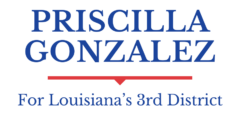House Bill 2964, also known as the Wastewater Infrastructure Pollution Prevention and Environmental Safety Act, aims to regulate the labeling and marketing of certain disposable wipes to prevent environmental pollution. Here are the key points of the bill:
- Labeling Requirements: The bill mandates that premoistened, nonwoven disposable wipes (referred to as “covered products”) must have a “Do Not Flush” symbol and label notice. This includes baby wipes, diapering wipes, and household or personal care wipes containing petrochemical-derived fibers.
- Packaging Rules:
- For products sold in bulk, both outer and individual packaging must display the label.
- Exemptions are provided for packaging that does not obscure the label or for products that are not intended to dispense individual wipes.
- Packaging smaller than 3 by 3 inches must still display the label prominently.
- Visibility and Placement:
- The label must be unobstructed by packaging seams or folds, be at least 2% of the principal display panel’s surface area, and have high contrast with the background.
- The label can be placed either adjacent to or in separate areas on the packaging.
- False Representation: Covered entities are prohibited from making any claims that these products are flushable.
- Enforcement: The Federal Trade Commission (FTC) will enforce the labeling requirements. Violations will be treated as unfair or deceptive acts under the Federal Trade Commission Act.
- Preemption of State Laws: The bill preempts any state laws that are not identical to its labeling requirements, ensuring uniformity across the United States.
- Definitions:
- “Covered products” include various types of disposable wipes marketed for personal or household use.
- “Covered entities” include manufacturers, wholesalers, suppliers, and retailers responsible for product labeling.
This bill aims to reduce the environmental impact of non-flushable wipes clogging wastewater systems and polluting water bodies by ensuring clear and consistent labeling (Congress.gov | Library of Congress) (Congress.gov) (Congress.gov).
When a congressman, such as Clay Higgins, votes against a bill like the Wastewater Infrastructure Pollution Prevention and Environmental Safety Act (H.R. 2964), it can have several implications:
- Environmental Impact:
- Negative Effects on Wastewater Systems: The bill aims to prevent non-flushable wipes from clogging wastewater systems. By voting against it, Higgins could be seen as not prioritizing the maintenance and efficiency of wastewater infrastructure. Clogged systems can lead to increased maintenance costs and potential sewage overflows, negatively affecting public health and the environment.
- Water Pollution: Non-flushable wipes contribute to water pollution when they break down into microplastics. Voting against the bill could be interpreted as not supporting efforts to reduce waterway contamination, which can harm marine life and ecosystems.
- Public Health Concerns:
- Health Risks: Blockages in wastewater systems can cause backups and overflows, which pose health risks by spreading pathogens. Opposition to the bill might suggest a lack of focus on mitigating these public health risks.
- Economic Consequences:
- Increased Costs: Municipalities and utilities might incur higher costs for repairing and maintaining damaged infrastructure due to non-flushable wipes. These costs can ultimately be passed on to taxpayers. Voting against the bill could be viewed as ignoring these financial burdens on local governments and residents.
- Consumer Misleading:
- Misrepresentation of Flushability: The bill seeks to prevent misleading claims about wipes being flushable. By opposing the bill, Higgins might be perceived as not taking a firm stance against deceptive marketing practices that mislead consumers.
- Legislative Consistency and Preemption:
- Uniform Standards: The bill ensures a consistent nationwide standard for labeling non-flushable wipes, preempting state laws. Voting against it might be seen as supporting a patchwork of regulations, which can complicate compliance for manufacturers and retailers.
From a political perspective, Higgins’ vote could be influenced by various factors, such as the interests of his constituents, industry lobbying, or differing views on regulatory approaches. However, the negative implications of his vote against this particular bill primarily revolve around environmental protection, public health, economic costs, consumer rights, and regulatory consistency (Congress.gov | Library of Congress) (Congress.gov) (Congress.gov) (Congress.gov).
